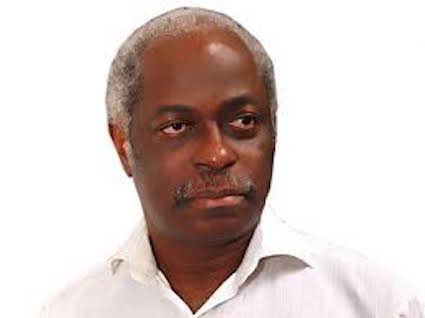By Opeyemi Obafemi
Over time, many Nigerians have highlighted the factors causing ills in our economy, and others have also painted the sorry state of small business owners. In any forum where I discuss with people, I always point out the steps to take as solutions to our myriad of economic problems.
Unfortunately, the Tinubu government is not taking those steps and that is why we will continue to grapple with these problems.
Inflation from a layman’s understanding is a general rise in price arising from much money chasing few goods. What I expect this government to do is to create the conducive environment that will ramp up production. Ramping up production will lead to massive employment, higher wages, stronger purchasing power and then there will be a bridge in the supply-demand gap, and inflation will naturally come down. For example, lets look at aluminium melting and iron production in Nigeria. The construction and printing industries have these products as their major inputs- Roofing sheets and iron rod for construction and printing plates for the print industry. China is cashing out on these while Nigeria cannot have Ajaokuta see the light of the day.
How will the government create a conducive environment for production?
Electricity- By now, I expect that foreign energy builders would have been invited here to come build clusters of mini grids where the state governments will be co-owners by contributing between 20 and 40 per cent equity in those mini grids, and the experts building them will be the ones running things while the state governments will just constitute part of the management. All these monies Tinubu is sharing to states, (most of which are stolen and used to chase dollars, thereby creating forex volatility) can be deployed for that purpose. For example, I imagine that Lagos, Ogun and Oyo states combine in this regard and build a 500-megawatt power project that will take care of the power needs of the industrial sectors in these states. Today I can say that energy costs take between 20 and 40 per cent of the manufacturing costs of companies in Nigeria. Growing up, we saw textile production thriving in Nigeria, most especially in Kaduna, Kano and Lagos. It was reported that textile was the highest employers of labour in the 60s, 70s and early 80s. Today, textile business has been decimated to an abysmal level in Nigeria and we spend trillions importing textiles every year
Tackle insecurity: We have non-oil mineral resources everywhere but illegal miners are using insecurity as cover and stealing these resources. The government should use intelligence gathering to get to the root of the insecurity in the land and solve it all at once. This same insecurity has fuelled inflation, mostly food inflation because the farmers are being driven away from their farms. Also if insecurity is tackled, I imagine the billion of dollars that Nigeria can make from tourism. I cry when I look at the legion of tourist sites we have here, but are left undeveloped because of the twin problem of ineptitude on the part of the people ruling or leading us, and the insecurity that will drive foreign visitors from the few tourist sites that exist.
Immediate and temporary relief for existing businesses: While the government is creating the environment that will make production thrive in Nigeria, which will take a few years to gestate, the existing businesses need protection from economic shocks that are capable of sending them to their early graves.
While I may partially agree that government may have no choice but to remove fuel subsidy and float the naira, I believe that it has control over port and custom charges. The present clearing costs add at least 15 per cent to costs of imported goods. Mind you in some sectors (like printing for example) 100 per cent of inputs are imported. For example up to 1996, some paper mills were still producing paper in Nigeria, but in the last 20 years, all of them have become moribund, mostly government owned, including the ones producing newsprint used in producing newspapers. So, combining astronomical cost of imported raw materials to high cost of energy in Nigeria, these two factors alone are enough to knock out small and medium businesses, even some of the big ones. And when this happens it exacerbates the already unemployment situation and by extension heightens insecurity
Reform and cleanse the oil and gas sector: For example, we heard recently that between October and January, up to 3.5 billion litres of petrol had been imported into Nigeria, even when Dangote and Port Harcourt refineries are producing more than enough for our local consumption. We learn that 40 per cent of forex demand today in Nigeria is for importation of petroleum products. In fact, Dangote imports crude and others import refined products. How can our naira gain value? But Tinubu has no answer to the cabals that are holding the oil sector by its jugular, stealing crude and dictating the marketing formula and prices of refined petroleum products.
I can go on and on. I am afraid that there are no step the government is taking now that is capable of putting Nigeria on a sound manufacturing footing in the future and there is no non-manufacturing nation that can prosper.
•Obafemi, CEO, Timeless Prints, writes from Lagos.




 2 weeks ago
17
2 weeks ago
17








 English (US) ·
English (US) ·